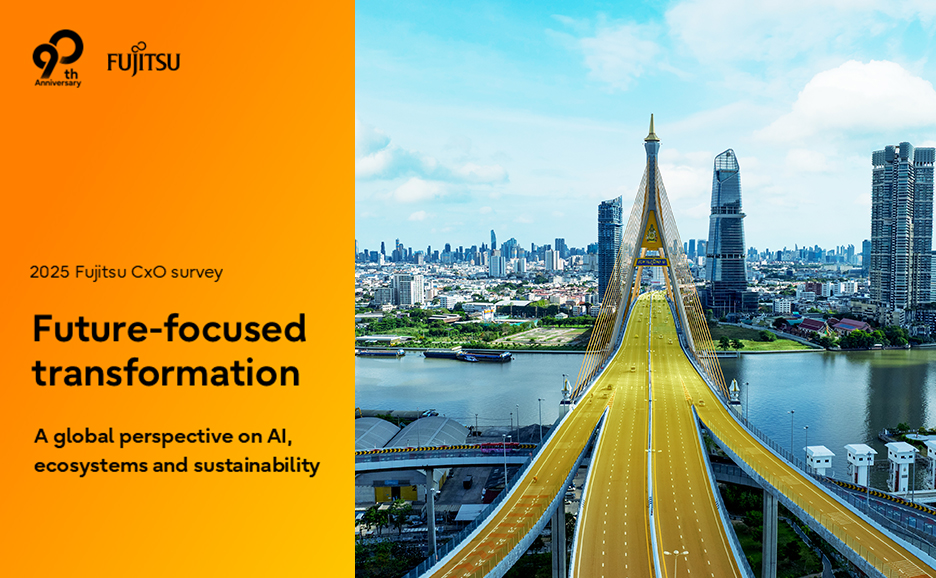2025 Fujitsu CxO survey: Future focused transformation

Report | 2025-09-04
Business leaders today navigate an unprecedented landscape of uncertainty, driven by geopolitical tensions and economic volatility. They face the dual challenge of adapting strategies for short-term survival while upholding a long-term commitment to societal well-being and environmental responsibility. To better understand this balancing act, Fujitsu commissioned a global survey and in-depth CxO interviews across industries, conducted by Frost & Sullivan.
This report thoroughly examines the current business climate, the profound impact of AI on organizational transformation, and the crucial shift towards delivering 'net positive' outcomes – where a company's positive societal and environmental impact outweighs its negative. Notably, our findings reveal that 83% of business leaders intend to realign their businesses to prioritize environmental and well-being value alongside economic growth.
Actionable recommendations are provided to empower business leaders in driving AI-enabled transformation and building organizations that not only thrive economically but also create significant positive impact for society and the planet.
Key findings
1. AI reshaping work
Our survey reveals a clear consensus: AI is set to fundamentally reshape work by 2030. An overwhelming 81% of leaders believe over half their business processes will integrate AI. In fact, 79% see AI permeating all operations, creating AI-driven organizations, and 82% believe AI will alleviate labor shortages. This widespread expectation highlights AI's transformative role in redefining how businesses operate and how human tasks are supported. The data points to a future where AI is deeply embedded across the enterprise, optimizing processes and addressing critical workforce challenges.
2. AI drives superior outcomes
AI leaders achieve superior financial and non-financial results. For instance, 97% saw increased revenue and 94% improved operating profit. Beyond financials, 92% report both higher customer and employee satisfaction. AI is a powerful tool for accelerating the transition to a net positive model. These figures underscore that strategic AI adoption not only boosts the bottom line but also enhances stakeholder well-being and contributes significantly to broader societal and environmental goals, making it a critical driver for holistic success.
3. Ecosystems & collaboration are crucial
The survey highlights the growing importance of leveraging ecosystems. Around 50% of organizations use ecosystems, with 16% actively collaborating with cross-industry partners. This is effective, as over 70% of organizations leveraging cross-industry ecosystems successfully transform sustainability challenges into revenue-generating business opportunities. This finding emphasizes that complex global challenges and sustainability goals are best addressed through collective effort. Collaboration across diverse industries and partners is essential for unlocking new value, fostering innovation, and achieving impactful, sustainable business outcomes that are difficult for any single entity to accomplish alone.
4. A Future-oriented transformation is essential
Ultimately, the survey results collectively demonstrate that a future-oriented transformation, integrating AI, ecosystems, and sustainability, is essential for companies to remain competitive and create a positive impact in today's complex global environment. This holistic approach allows businesses to not only navigate current uncertainties but also contribute to shaping a sustainable and prosperous future for all stakeholders. Success in this transformation relies on focusing on four key drivers: Purpose (aligning with societal needs), AI (strengthening capabilities), Ecosystem (collaborating across industries), and Data (measuring outcomes).
2025 Fujitsu CxO survey
Future focused transformation
Global perspectives of AI, ecosystems and sustainability


Related reports
Fujitsu Technology and Service Vision

Fujitsu Integrated Report 2025

